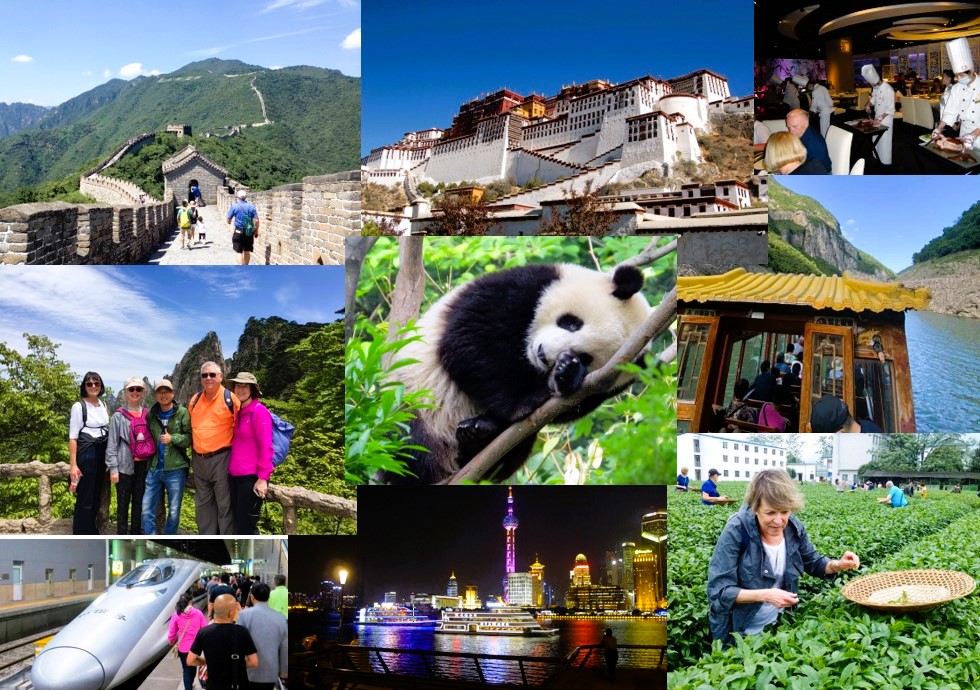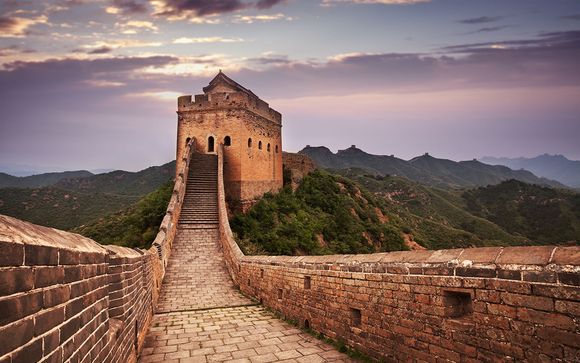20 Top Tips To A Deep Dive into China Food Culture
20 Top Tips To A Deep Dive into China Food Culture
Blog Article
Top 10 Tips For Dealing With copyright Products When Shopping In China
1. Know the High Risk ItemsTip Branded items such as bags, watches, electronics and designer clothes are commonly counterfeited. You should shop for these products with extreme care.
Pro: You can focus on products that are likely to be copyright.
Con: Uncertainty over the authenticity of products could cause suspicion.
2. Search for authentic product details
Tips: Get familiar with the brand's logo, stitching, material, and packaging before you shop.
Pro: Increases your ability to detect subtle differences between authentic and copyright products.
Con: Time-intensive, especially when you're not acquainted with.
3. Trusted Stores
If you're looking for high-value products at malls or brand names like Beijing's China World Mall and Shanghai's Plaza 66, then stick to them.
Pro It comes with receipts and warranties, and ensures the authenticity of products.
Cons: Prices may be higher than at smaller shops and markets on the streets.
4. Inspect labels and tags
Check for low quality products, misspellings, or inconsistent fonts on packaging and tags.
Pro: A quick method to spot fakes.
False goods of high-quality may closely resemble authentic items, making it harder to detect.
5. Beware of "too promising to be real" price tags
Tips: Prices that are low on luxury items ought to be a warning signal. The most expensive luxury items are not often sold at a price lower than the retail price.
Pro: It can help you avoid scams that are obvious.
Pros: Some sellers make use of moderate pricing to convince counterfeiters.
6. You can request authenticated certificates
Tip: For items such as jade (or antiques) or other branded items, or brand new goods request proof of authenticity.
Pros: It provides an extra layer to your confidence.
Cons: Certificates may also be forged, so it's not a foolproof method.
7. Try Before You Purchase
Ask to have high-value electronics as well as other items examined prior to making a purchase.
Pro: Helps confirm the functionality and quality of the product.
Pros: Certain sellers may prohibit testing or limit tests to a few basic purposes.
8. Don't buy antiques unless you have the guidance of an expert.
Tip - To verify authenticity of antiques you must have a deep knowledge. If you are not confident about their authenticity, avoid them.
Pro: Less chance of being scammed by a fake.
Cons: You could miss out on decorative objects that look appealing but not authentic.
9. Use a Local Guide that You Can Rely on
TIP Local guides or a acquaintance with the market could help identify reputable vendors and spot fakes.
Pro: Reduces the chance of buying from unexplored markets.
The downside is that your costs could be higher by guides who anticipate to earn a tip or a commission.
10. Don't be afraid to trust your instincts
It is best to leave an item if it doesn't feel or feel right. It could be due to the customer's attitude, or the quality of the product, its price, etc.
Pro: Keeps you from regrettable purchases
Cons: Over-prudence could lead you to overlook genuine deals.
Pros and Cons of Staying Away from copyright Products
Durability: Genuine products are stronger and give better value for money.
Peace of Mind: There is no need to worry about being scammed or deceived.
Legal Security: Certain countries penalize travelers if they bring returned copyright goods.
Supporting genuine products is crucial in ensuring ethical business practices.
The Benefits of avoiding bogus products
Genuine products tend to be more expensive.
The availability of genuine goods might not be available in small shops or markets.
False bargains: Some fakes provide top quality and excellent value at a low price.
With these suggestions, you can navigate the shopping experience in China without fear and make informed choices about buying authentic or copyright products. Read the top check out this iconic site for more info including eating in fuzhou, taishan tour maps, south luogu laneone of the oldest neighborhoods in beijing, temple of confucius one of the three largest ancient architectural complexes, mount li a royal garden since the zhou dynasty, eating in changchun, xishuangbanna, shopping in kashgar, eating in urumqi, shaoxing wine the best yellow wine in china and more.
Top 10 Tips For Fees Photography Rules And The Visit To Temples In China
1. Be ready to pay entry FeesTip: Many famous Temples require a fee to enter, which can be anywhere between Y=20 to Y=200. Make a budget for your trip by planning ahead.
Pro You'll be able to prepare the correct amount of electronic or cash payment and stay clear of unpleasant surprises.
Con: Unexpected extra costs like special exhibit fees can occur.
2. Bring cash or a digital payment
Tip: Some temples only accept cash or the most popular Chinese payment methods such as WeChat Pay or Alipay.
Pro: Easy entry with no delays in payment.
Cons: Limited payment options for foreigners unfamiliar with digital apps.
3. Find signs that say "Photography"
TIP: Always verify posted signs indicating the rules for photography. Many temples limit photography in the sacred artifacts' sanctuaries or within the sanctuaries.
Pro: It prevents unintentional disrespect or violation of rules.
Cons: The rules might differ between different areas of the temple. This requires extra care.
4. Avoid Flash Photography
Tips: Beware of flash photography in areas that allow photography. Flash can harm artifacts, and disturb worshippers.
Pro: The temple's natural environment, art and culture are protected.
Con: Low-lighting may cause less-than-ideal images.
5. Be respectful of the privacy of worshippers
Do not take photographs of religious services or people praying, unless they have given you permission.
Pro shows an understanding of culture and respect for privacy.
Con The ability you have to capture the mood of a temple may be a bit limited.
6. Follow Drone Restrictions
Tip: Drone use is generally not permitted close to temples. Be sure to check local regulations if you intend to use a drone for aerial photography.
Pro: You'll avoid fines and confiscation of drones.
Cons: It restricts the possibility of capturing distinctive angles.
7. Get Ready for Additional Fees
There is a possibility of being charged additional by certain temples for permission for taking photos, especially in the case of professional equipment such as DSLRs or tripods.
Pro: It assures that you can legally capture images of high quality.
Cons: It increases overall trip cost
8. Dress sensually
Dress appropriately in temples. If you don't do this, you could be denied access or banned from certain areas.
Pro: It displays respect for the religious environment and assists you in blending into the community.
Con: May need extra preparation, especially in hot weather.
9. Be aware of crowds when you take photos.
Tips Beware of crowds by going early in the morning, or late in afternoon. It is much simpler to photograph in a clear area.
Pro: Enhances the quality of your experience and images.
Cons: You may need to change your schedule which may not be convenient.
10. If you are in doubt, ask for Permission
If you are unsure about the photography rules, please contact the temple staff for clarification or check signs.
Pro: You can prevent unintentionally breaking rules.
Con: Language barriers might make communication difficult.
The Benefits of Following Photography Fees
Cultural Respect Affirmation of local customs and religious beliefs.
Artifact Protection: Protect fragile artworks and structures from the possibility of damage.
Positive Experiences Avoiding conflicts with temple staff and worshippers.
Legal Compliance: Guards you against penalties or fines if you violate the rules of photography.
Pros of Paying Fees and Photographic Rules
More Costs: The cost of additional fees for entry and photography permits could add up.
Limits on Creativity. Limitations could stop you from taking the perfect shot.
Language Barriers: Unability to understand local signage or converse with employees.
Research can be time-consuming. Preparing ahead of time requires extra effort.
It is possible to have a tranquil fun, relaxing and respectful trip to China's temples if you adhere to the rules and regulations. This will also protect their spiritual and cultural integrity. Check out the top discover this must-visit location for site advice including xiamen, eating in shangri la, xiamen, shopping in macau, biking tours, anren ancient town, tours for the disabled, xiang cuisine.html, wuzhi mountain wuzhi shan five finger mountain, shopping in tibet and more.